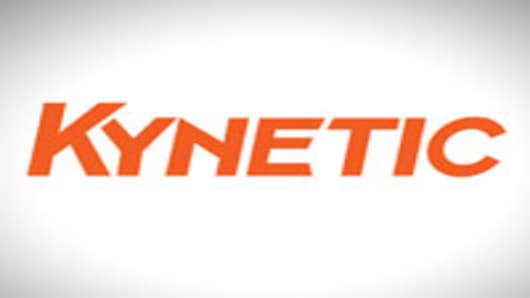As founder of GSI Commerce, Michael Rubin is well-known in the business community. In the sports industry? Not so much. But Rubin is about to become one of the most influential people in the sports business.
After selling GSI Commerce to eBay for $2.3 billion earlier this year, Rubin bought back the sports part of his business, which ran all the e-commerce for the NFL, NBA, MLB, NHL and NASCAR. He also took with him Fanatics, which sells about 50 percent of all college merchandise online, a company that GSI bought for $277 million before the acquisition.
Because eBay was uncomfortable with competing against its own sellers, Rubin got a good deal to take the sports business off the company's hands. It also enabled him to buy a majority share of shopping sites Rue La La and Shoprunner.
The sports business, now under the Fanatics name, with the shopping sites make up his new company called Kynetic. Rubin is one of the most impressive people in the business simply because he essentially re-invented sports e-commerce.
Before Rubin came along companies that did business with the leagues just fulfilled their orders. Rubin promised and delivered more. He drove sales by connecting merchandising to fans insatiable appetite for content about their teams and he pushed for more variety.
Under Rubin, the amount of choices that fans had more than doubled. Rubin does own the inventory he sells so he does take that risk. He freely admits he has plenty of NBA jerseys sitting in his warehouse, but says the NFL business, after a work stoppage, is back and better than ever.
Where Rubin is going to change the sports merchandising business is in the hot market. Too often, a particular athlete does extremely well and his jerseys sell out across the country. Losing days and sometimes weeks means losing millions of dollars in potential sales. Case in point, Kynetic's college business just ran out of Wisconsin #16 jerseys, due to the success of Wisconsin quarterback Russell Wilson, who wears the number.
In the future, the company plans to be more agile and will be able to print numbers from blanks on the spot, as it does with the NFL. Because of its buying power, Kynetic also has an advantage in that it will have access to sell special edition type jerseys and merchandise that can only be found on its network of sites. (It was the only place, for example, I could find the white Northwestern Dan Persa jersey.)
Fan e-commerce hasn't quite come as far as book e-commerce. Some people feel like it's easier to go to the store. That they want to touch or feel the jersey they're buying. But Rubin's way of making the fan buy an item to support their team instantaneously on the computer has changed the game.
He grew the NFL's online business from $40 million to close to $200 million and the NHL's business from $12 million to $50 million. Thanks to his help, online merchandise sales is the second fastest growing revenue stream for all these leagues following television revenue. People who make a lot of money are particularly good at making a lot more money. Rubin is one of those guys. But it's comforting to know that he's also making the fan shopping experience more efficient.
Questions? Comments? SportsBiz@cnbc.com



